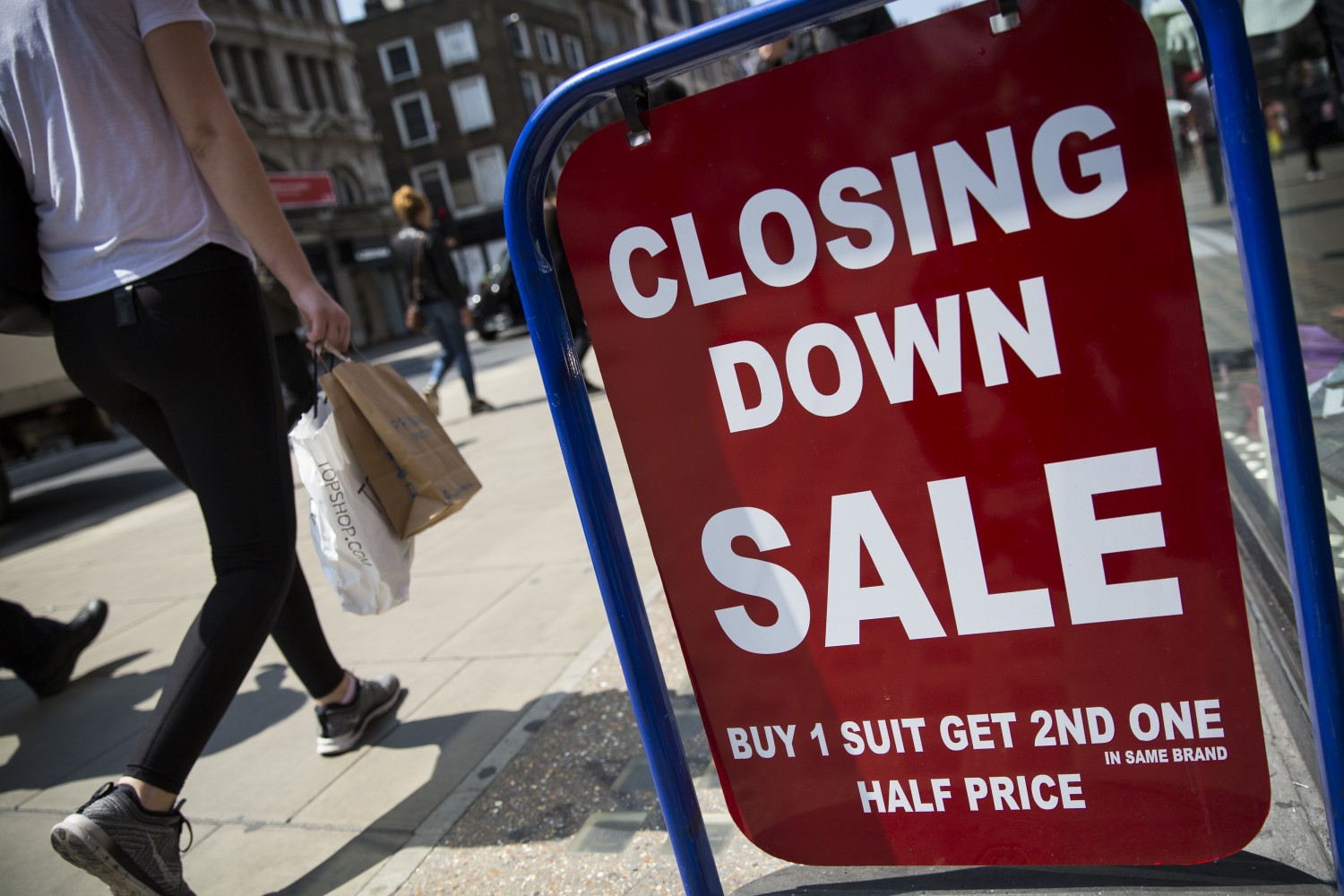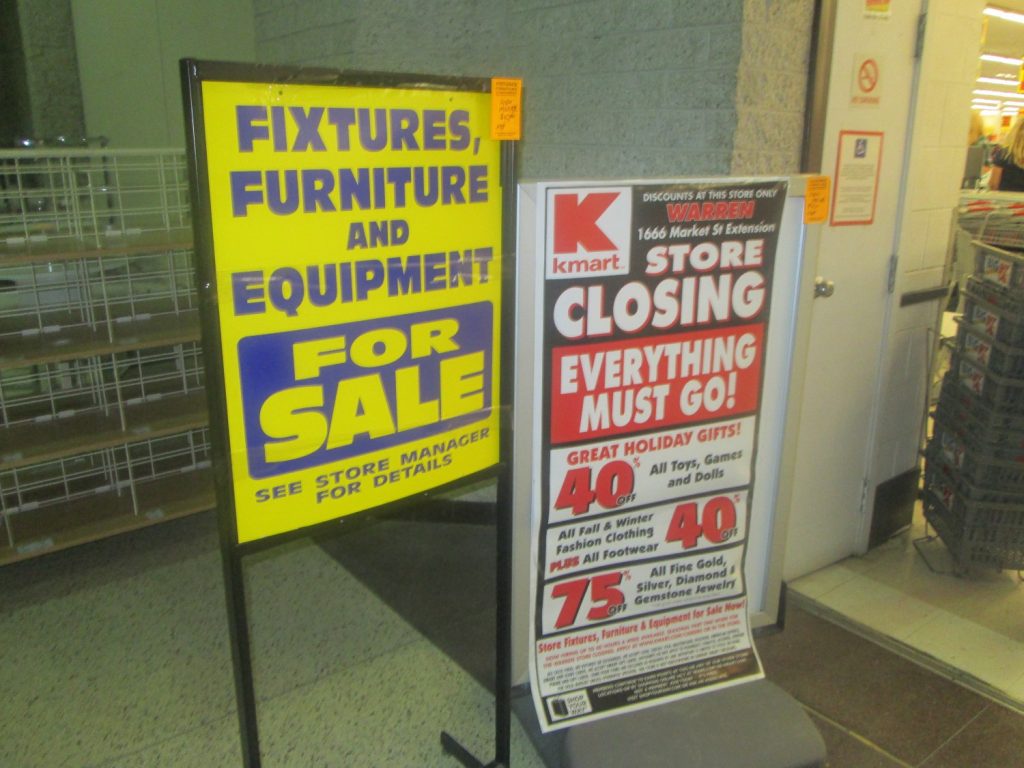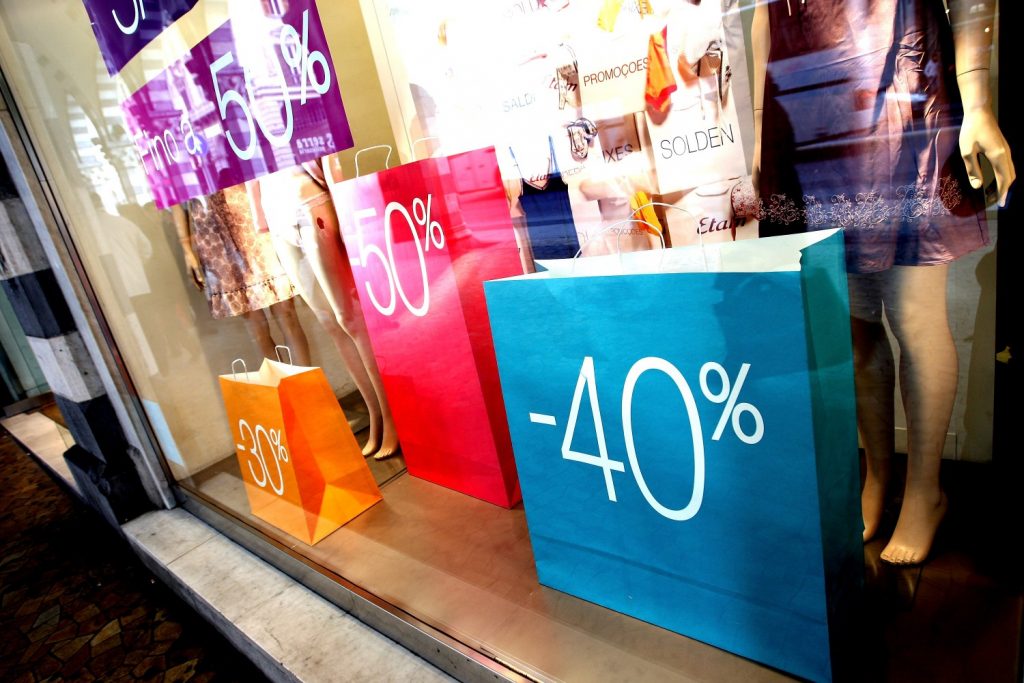The products and services mentioned below were selected independent of sales and advertising. However, Don't Waste Your Money may receive a small commission from the purchase of any products or services through an affiliate link to the retailer's website.
Store closing sales, or liquidation sales, seem like a great place to snag a bunch of deals. “That’s amazing!” you think. “I’ll go get a couch for $200! Or maybe a few new pairs of shoes for 99 percent off!”
Well, we have some bad news for you. Liquidation sales are not always the big bargain you were hoping for.
Liquidation Sales Start With Higher Prices
The “savings” at these store closing sales aren’t much of a savings at all. Initially, outside liquidators will handle the sales, according to Consumerist. The first thing these outside liquidators do? Jack up all the prices back to the manufacturer’s suggested retail price. So…not even remotely on sale.
Later, items might be discounted. Maybe you can get 20 or 30 percent—maximum—off the original retail price at the very beginning of the sale.
And the discounts increase as the store’s closing date gets closer. However, you can guarantee that, by that point, the best merchandise will be picked over.
According to an ABC News interview with retail industry analyst Stephen Baker of the NPD Group, “liquidation sales aren’t a great deal for the consumer.”
Retailers rarely sell items at a loss, even when the store is about to close. Those “everything must go” signs are more effective at playing up on the public’s psyche, making them believe they’re getting a good deal when they really aren’t.
If a company handles its own liquidation sales instead of outsourcing them, that doesn’t mean the deals get any better. Recently, RadioShack filed for bankruptcy once again and has been running its own store closing sales. Consumerist noted that the company changed the “original” prices on a number of items.
When asked, RadioShack employees told Consumerist that many items in the store, including store-brand merchandise, were marked up before clearance and liquidation sales began. That means they made the discounts on the goods seem much better than they actually were. Consumerist even discovered that some of the items on “sale” from RadioShack were actually significantly cheaper during holiday sales.
Sky-High Prices
Consumerist conducted a deeper look into RadioShack’s situation and learned from several anonymous employees that a RadioShack regional office told area stores that prices on more than 500 items would be changing around the end of February. This email came just two weeks before the company’s March 8 bankruptcy filing.
“A couple of weeks ago we raised the prices of every item in the store by 20-50 percent and now our clearance sale is 20-50 percent off,” an employee told Consumerist under the condition of anonymity.
Obviously, that’s not a sale at all—it’s just a clever marketing ploy to ensure that every last penny is squeezed out of a sinking ship. And employees at RadioShack locations across the country say that’s par for the course in liquidation sales.
Of course, now, people can do more research about the original retail prices of items they might be interested in purchasing. Now, instead of wildly spending just because Payless is advertising 50 percent off all shoes, we can turn to Siri and ask whether or not that’s a good deal.
No Returns At Liquidation Sales
Ultimately, the biggest thing to remember about buying from a liquidation sale is that there are often no returns. This is reminiscent of Circuit City’s closing in 2008. The company had two rules: no returns and no opening boxes. So when a customer bought a broken TV by accident, it was the end of the road.
So keep this information in mind next time you see those big “massive sale, everything must go, rock bottom prices” signs hanging in a window. Chances are, the prices aren’t even rock bottom, and you can find a better deal elsewhere.









